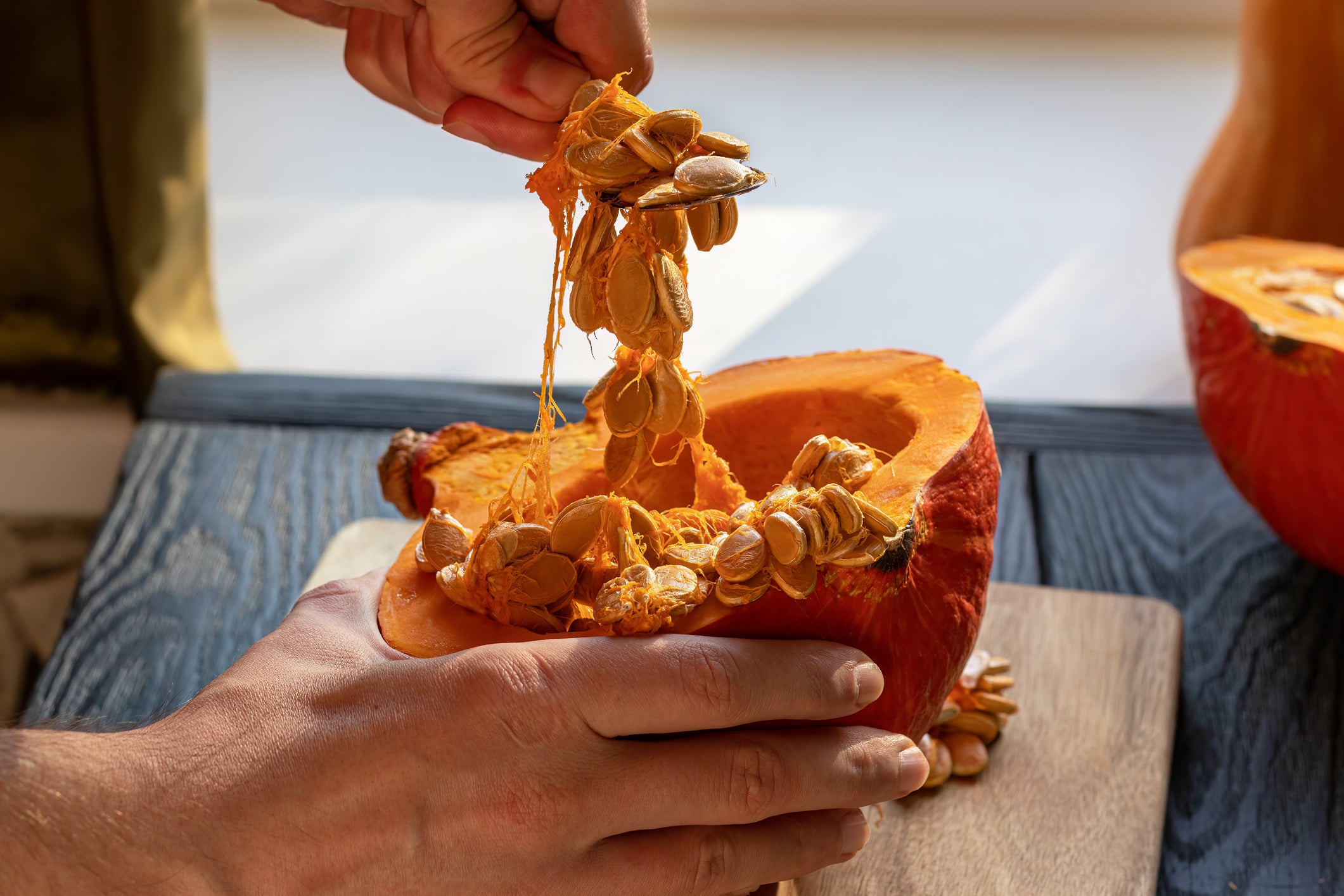Digging around in slimy, stringy pumpkin guts may not be your idea of a good time – but the festive gourd’s innards are hiding a super healthy snack.
A regular-sized, porch pumpkin can hold hundreds of seeds, which are packed with protein, fiber and other critical nutrients that can help with weight loss and protect against harmful inflammation linked to heart disease and cancer.
Fall is an important time to think about nutritional choices. People tend to exercise less as the days grow colder and mental health can be negatively affected by the darkening days.
“Pumpkin seeds are a good source of plant protein and other nutrients, which can act as antioxidants to help protect against certain diseases,” registered dietitian Beth Czerwony told the Cleveland Clinic.
Just one ounce of pumpkin seeds have 8.5 grams of protein, which helps people feel fuller longer, Czerwony noted.

Eaten with or without shells, the seeds are also a good source of fiber. One ounce, with shells on, have about five grams. If shelled, they have just under two grams, according to the American Heart Association. People need about 25 to 30 grams of fiber a day, according to UCSF Health.
But these aren’t the only benefits. Pumpkin seeds provide other crucial nutrients, including magnesium. This essential mineral aids in heart and bone health, lowers blood pressure and can prevent migraines.
“As a mineral, magnesium actually helps with a lot of the [bodily] functions of the body,” Judith Wylie-Rosett, a professor and division head for health promotion and nutrition research at New York’s Albert Einstein College of Medicine, said.
Pumpkin seeds have the sleep-promoting amino acid tryptophan, and a tablespoon has around 6.6 milligrams of zinc, nearly half the recommended daily intake.

Zinc is tied to lower inflammation. The antioxidant also helps fight high blood pressure which can lead to diabetes.
In some research, consuming pumpkin seeds has been tied to a reduced risk of cancer, including breast and prostate cancers.
They can be quite tasty when eaten raw. However roasting the seeds actually increases the antioxidant levels, and makes them easier to digest.
And the seeds taste great with seasoning. Some butter, cinnamon and sugar, or a little bit of salt, can do the trick – just not too much. “I recommend opting for unsalted or lightly salted options,” said Czerwony.
Toast them for the perfect crunchy addition to a harvest salad or sprinkle them over some pumpkin or butternut squash soup for a taste of the season.



0 Comments